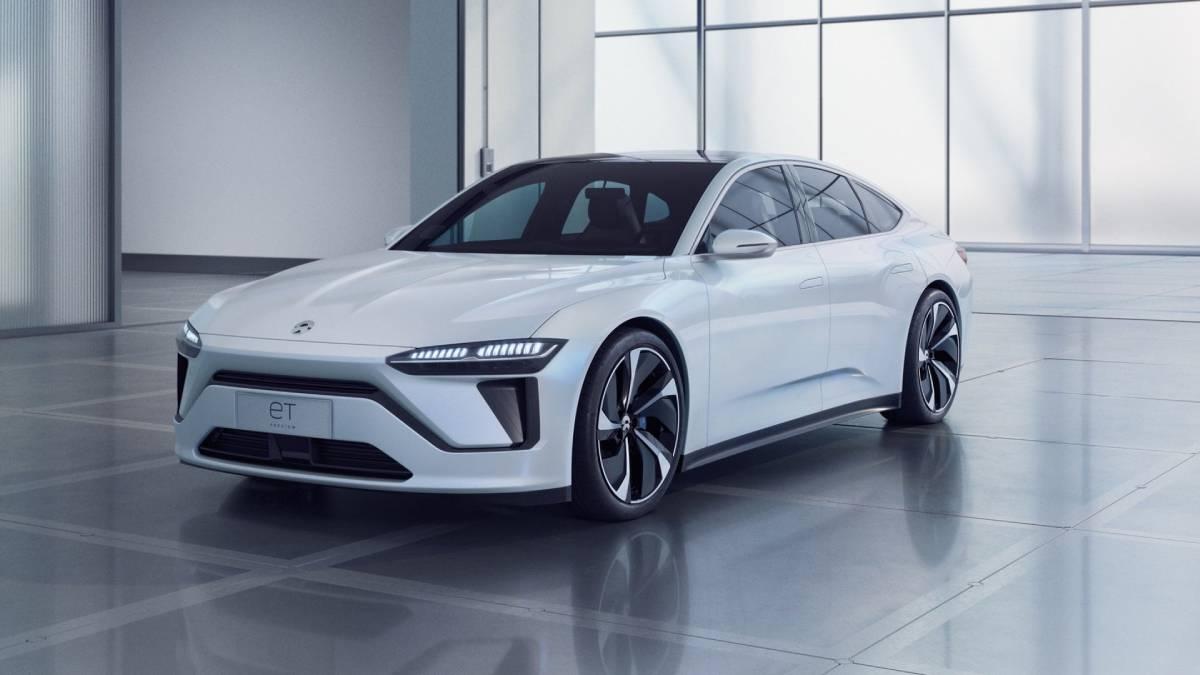
NIO
Innovating Hygiene Standards: NIO's Adoption of Biomaster in Electric Vehicles
As the automotive industry undergoes a paradigm shift towards innovation and sustainability, NIO, the Chinese electric car manufacturer, stands at the forefront with its commitment to excellence. Addmaster are proud of our partnership with NIO in their quest to redefine automotive hygiene standards by integrating Biomaster antimicrobial technology into their cutting-edge vehicles.
NIO's Vision for Hygienic Driving Experiences
In the wake of the global pandemic, the importance of maintaining clean and hygienic environments has never been more evident. A study found that touch points in almost every modern car, including cup holders, seat belts and dashboard buttons are potential hot spots for bacteria. Swabs showed between 100-200 individual bacterial types and the most heavily contaminated samples had between 2,000 and 4,000 live bacteria per swab.[1]
NIO recognises this imperative and aims to ensure that their vehicles provide not just transportation, but a hygienic and comfortable experience for their customers. With this vision in mind, NIO has chosen to incorporate Biomaster antimicrobial technology into the leather of their car interiors.
Biomaster: The Silver Lining for NIO
Biomaster is a revolutionary silver ion based antimicrobial technology designed to inhibit the growth of microbes on surfaces. This innovative solution offers long-lasting protection, ensuring that car interiors remain fresher and more hygienic between cleanings. Unlike traditional disinfectants that provide a temporary clean, Biomaster delivers 24/7 surface protection for the lifetime of the vehicle, without compromising structural integrity.
Trials and Successes: NIO's Adoption of Biomaster Technology
NIO's commitment to excellence is reflected in their meticulous approach to integrating Biomaster antimicrobial additives into their vehicles. Initial trials proved successful, with Biomaster coatings being incorporated into NIO’s Haptex seats. Further trials have also taken place to extend this product protection to other potential hot spots within the car interior, such as handles and steering wheels.
Driving Towards a Cleaner Future with NIO
Among the models benefiting from Biomaster technology is the NIO ET7, NIO's first saloon car and a direct competitor to the Tesla Model S. With its impressive specifications, including a massive 150kWh battery pack and a powerful twin e-motors powertrain, the ET7 is an exhilarating driving experience. Add to that the assurance of a hygienic and comfortable interior, thanks to the incorporation of Biomaster antimicrobial technology, and the ET7 emerges as a formidable contender in the electric vehicle market.
Industry Recognition and Forward Momentum
The partnership between NIO and Addmaster represents a convergence of innovation and vision in the automotive industry. As industry experts predict NIO's ascent to global leadership alongside established brands like Tesla, the incorporation of Biomaster antimicrobial technology underscores NIO's commitment to setting new standards for automotive hygiene excellence.
Looking Ahead: A Milestone Partnership
For Addmaster, collaborating with NIO is a significant milestone in our journey towards revolutionising hygiene standards across diverse industries. Chenyan Sun, Commercial Director at Addmaster said "This is a breakthrough in the transport category which we are heavily investing in. The automotive sector presents immense opportunities for growth and innovation, and our partnership with NIO exemplifies our dedication to driving positive change.”
In conclusion, the integration of Biomaster antimicrobial technology into NIO cars is testament to Addmaster’s commitment to enhancing hygiene, comfort, and innovation in the automotive industry. As NIO continues to pave the way for the future of electric vehicles, Addmaster remains proud to be a trusted partner in this journey towards a cleaner, safer, and more sustainable tomorrow.
[1] Study conducted by Professor John Ward from the Department of Biochemical Engineering at University College London.
You can find out more about NIO HERE
You can find out more about Biomaster HERE
